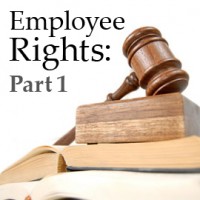
Many employers and business owners in the moving industry ask questions about the legal entitlements of their employees at work. Sometimes employees may claim they have certain legal rights. However, as an employer, you may be unable to determine whether the employee is right or not. It is a common situation faced by all employers.
So what can you do? Here are some common legal issues that may come up between employer and employees and how to deal with them.
Cellphones – It is prevalent in today’s digital world for employees to spend a lot of their on-duty time browsing social media sites or texting on their cellphones. In this case, the law benefits the employer. The fact is that there is no law that allows employees to possess and use personal phones while they are working. As an employer, you have every right to prohibit cellphones while working. It is up to the boss to determine whether to simply ask employees to turn-off the phone or put it away. However, employees can use their cellphones during meal breaks because they have the right to leave the workplace during those times.
Smoke Breaks – Many smoking employees claim that they are entitled to more breaks than non-smokers. Again, the law favors the employer. The fact is that employees are only entitled to a limited number of ten-minute breaks depending on hours worked. They can also be required to stay on the premises during these breaks. Employers have the right to ban smoking on their property, in which case employees can only have smoke breaks during meal breaks or away from the property.
Leave for Bereavement – Employers may experience a situation where a member of their staff claims his or her distant uncle has passed away and may ask for a couple of days of bereavement leave. Employers should know that there is no law that requires bereavement leave for any employee even for a close relative who has passed. However, many employers do offer it, but they can determine the rules. In addition, if you’re an employer in California and you offer bereavement leave for the death of a spouse, you must also offer it for domestic partners.


















Leave Your Response